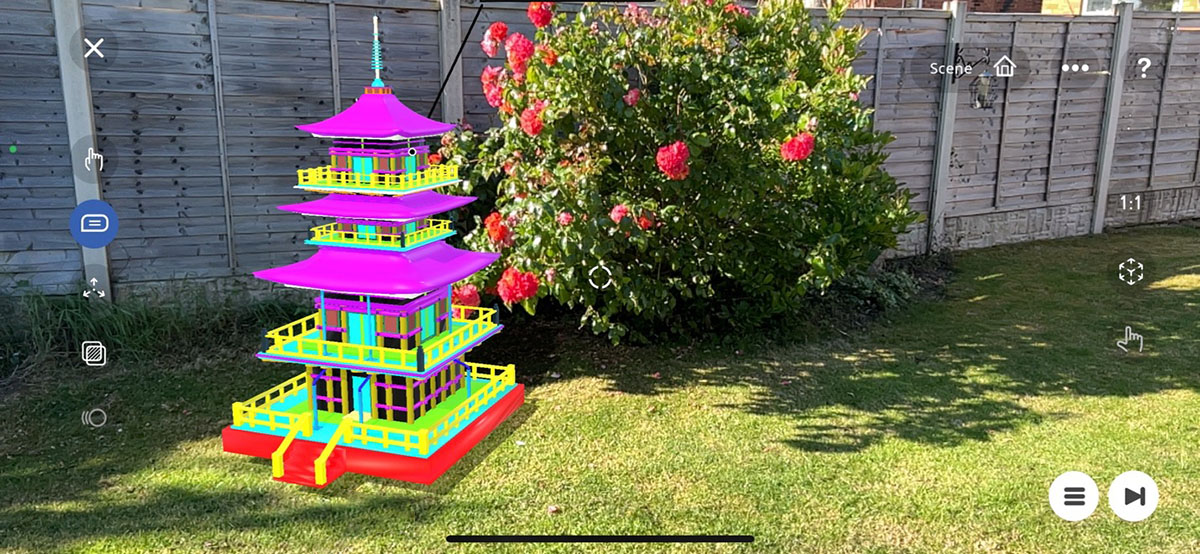In a collaboration with Nottinghamshire County Council’s Virtual School, Rix Inclusive Research provided technology and expertise to give students a taste of Japanese culture.
As part of a year-long Japanese-themed literacy project to close the gap between a marginalised group of learners and their peers, students created a Japanese building using EON-XR software. After designing the building, they added background music, inspired by Japanese soundscapes. The music was created in a professional recording studio with world-renowned artist David Wise, composer of the music to countless iconic Nintendo games like Donkey Kong Country.
In a special summer celebration of the project, the students eventually viewed their creations in Newstead Abbey’s Japanese garden, where they could stand in the shot, alongside the building they had created.

The setting of Newstead Abbey, ancestral home of the poet Lord Byron, provided further inspiration and cultural enrichment as students shared their work in the shadow of a rich literary history.
The students were also given a collection of books about Japan, to learn more about Japanese culture and traditions. They engaged in activities that supported reading and writing, such as creating Haikus and experimenting with colours and textures in artwork.
The use of augmented reality brought the students up-close to an unfamiliar culture, engaging them in new ways with the space in Newstead Abbey while also providing an authentic backdrop and genuine audience who appreciated the sights and sounds of Japan.
In previous years, the project team have been heavily involved in virtual reality and other technologies that help to bring young people with limited life experience into spaces which help them to imagine new and different places to the ones they know. The impact on their creativity, language and motivation has been evidenced and documented as significant.
Rix Inclusive Research, University of East London, and Nottinghamshire County Council look forward to future collaborations to give cultural opportunities to disadvantaged groups in new accessible and inclusive ways.
This project forms part of the Multimodal Literacy programme where over 70 students and families in Nottinghamshire and Derbyshire take part in a range of projects with ever-changing themes.
Written by Craig Wilkie

